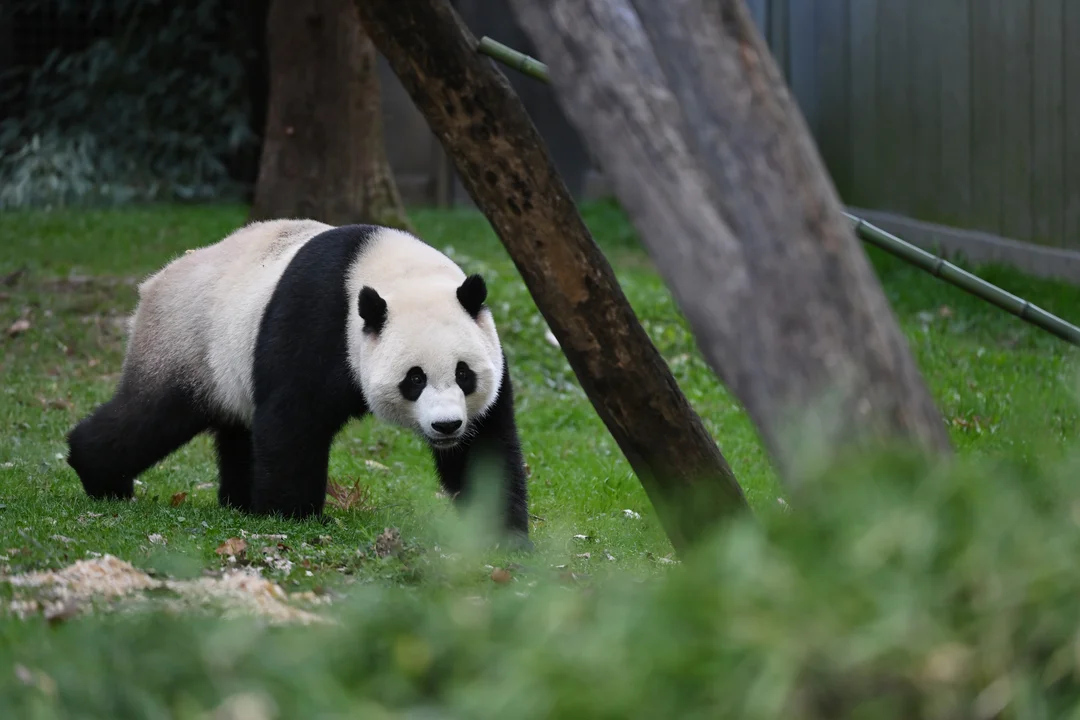
Will The Trade War Affect The Arrival Of Pandas At San Francisco Zoo?
The potential impact of the ongoing trade war between the U.S. and China has raised concerns regarding the San Francisco Zoo's long-awaited deal to import a pair of giant pandas. As geopolitical tensions rise, Zoo CEO Tanya Peterson remains optimistic about the pandas’ arrival, emphasizing their significance as an endangered species and the need for careful consideration regarding any tariffs that could apply.
Peterson noted, "Pandas are an endangered species, so obviously, they should be exempt from tariffs. Who’s going to tax the cute animal?" Her lighthearted remark underscores the unique challenges surrounding the delicate balance of trade and wildlife conservation. Currently, the deal is on track, but there is still uncertainty regarding how tariffs could influence the projected costs of this international cultural exchange. As it stands, a potential 245% tariff could significantly raise the annual price from $1 million to over three times that amount.
The anticipated arrival timeline for the pandas is expected to be shared at Thursday’s Recreation and Park Commission meeting. After their long journey, the pandas will undergo a quarantine and acclimation period before their exhibit opens to the public next April, should everything progress smoothly. This careful preparation reflects the zoo's commitment to ensuring the pandas have a safe environment as they settle into their new home.
Interestingly, the pandas are categorized as rentals rather than purchases, which adds another layer of complexity to the situation as trading tariffs typically apply to sale transactions rather than cultural exchanges. Darlene Chiu-Bryant, head of Global SF, remarked on the uniqueness of this scenario, saying, "If you look purely at the transaction, there’s the value of the product – and typically, that would incur a tariff. But in this case, it’s neither a lease nor a sale, but more of a cultural exchange. So how can you put a tariff on a pair of pandas?" This line of questioning highlights the ongoing debate about appropriate trade practices and the importance of protecting endangered species while navigating international relations.
As part of her efforts to solidify the pandas’ arrival, Peterson plans to travel to China in the fall to meet the selected pandas herself, further solidifying the personal commitment this initiative requires. Despite facing previous challenges, including public scrutiny and accusations of mismanagement, she expressed confidence in the zoo’s ability to overcome obstacles through effective fundraising and community support.
The panda deal was originally established during a visit to Beijing by former Mayor London Breed last year, showcasing the interplay between political and environmental initiatives. As the Recreation and Park Commission meeting approaches, all eyes will be on the zoo's management strategies and ongoing preparations to ensure the successful integration of these beloved animals into their new habitat.
What are your thoughts on the implications of trade policies on wildlife conservation? Do you believe cultural exchanges, such as bringing pandas to the San Francisco Zoo, should be shielded from tariffs? Share your opinions in the comments below!